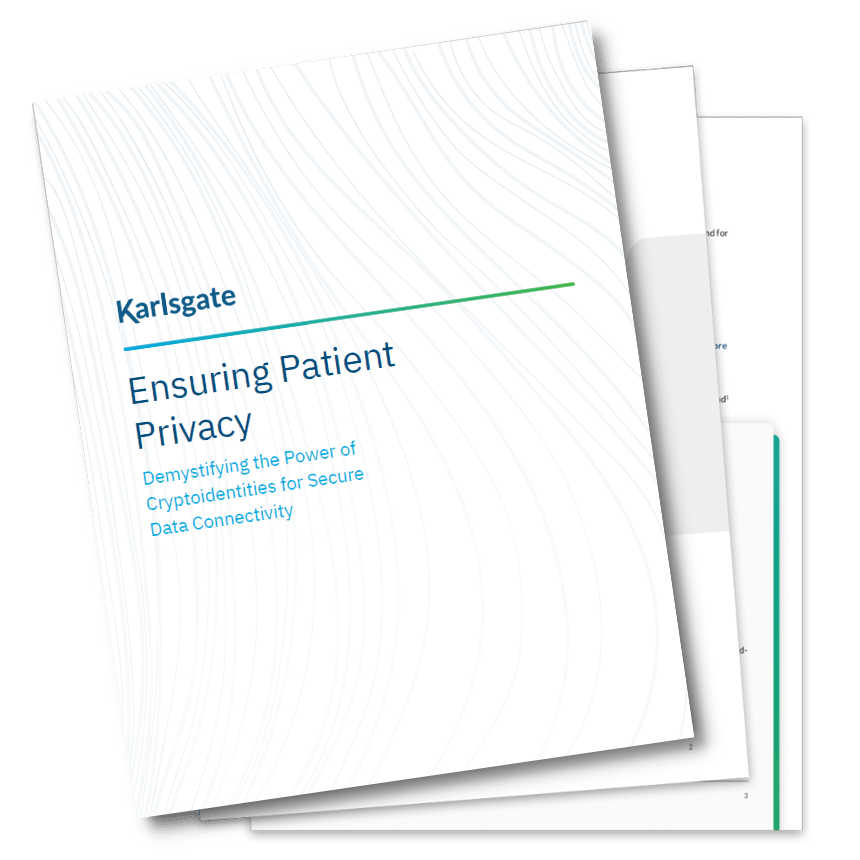
Resource Guide
Ensuring Patient Privacy
Demystifying the Power of Cryptoidentities for Secure Data Connectivity
Download this guide to discover:
- How current data-sharing methods are putting patient data at risk
- Why a zero-trust approach to sharing PHI can help you minimize data breaches and HIPAA fines while still maximizing data value
- How to implement privacy-by-design data sharing without inhibiting use cases
An Inside Look
Individual privacy protection and data security are issues that should keep you up at night. The healthcare industry has been sharing, posting and transmitting data for decades with little regard for disclosure risks as long as they are HIPAA compliant and have business associate agreements (BAAs) in place. Lack of public awareness and focused legislative agendas threaten to impede progress toward more beneficial applications for managing, connecting and integrating real-world data (RWD).
A new data-sharing approach is needed. The primary design consideration for this new approach must be balancing the needs for protecting individual privacy with the needs for linkage and connectivity of healthcare data. Personal data rights are a rapidly expanding field with ethical, legal, and strategic implications. For technology to keep pace with these dynamics, new mechanisms need to be designed, developed, and implemented to support a new social contract of personal data protection.
Karlsgate created Cryptoidentity™ to protect individual privacy while enabling efficient linkage of data between business associates.
$4.45M
average cost per data
breach in 2023
51.9M
patient records
compromised in 2022
70%
“Lorem ipsum dolor sit amet, consectetur adipiscing elit. Tellus fames sollicitudin fermentum elementum risus vulputate. Vitae sed eu nec urna.”
John Carter
- VP of Marketing at Webflow
“Lorem ipsum dolor sit amet, consectetur adipiscing elit. Tellus fames sollicitudin fermentum elementum risus vulputate. Vitae sed eu nec urna.”
John Carter
- VP of Marketing at Webflow
